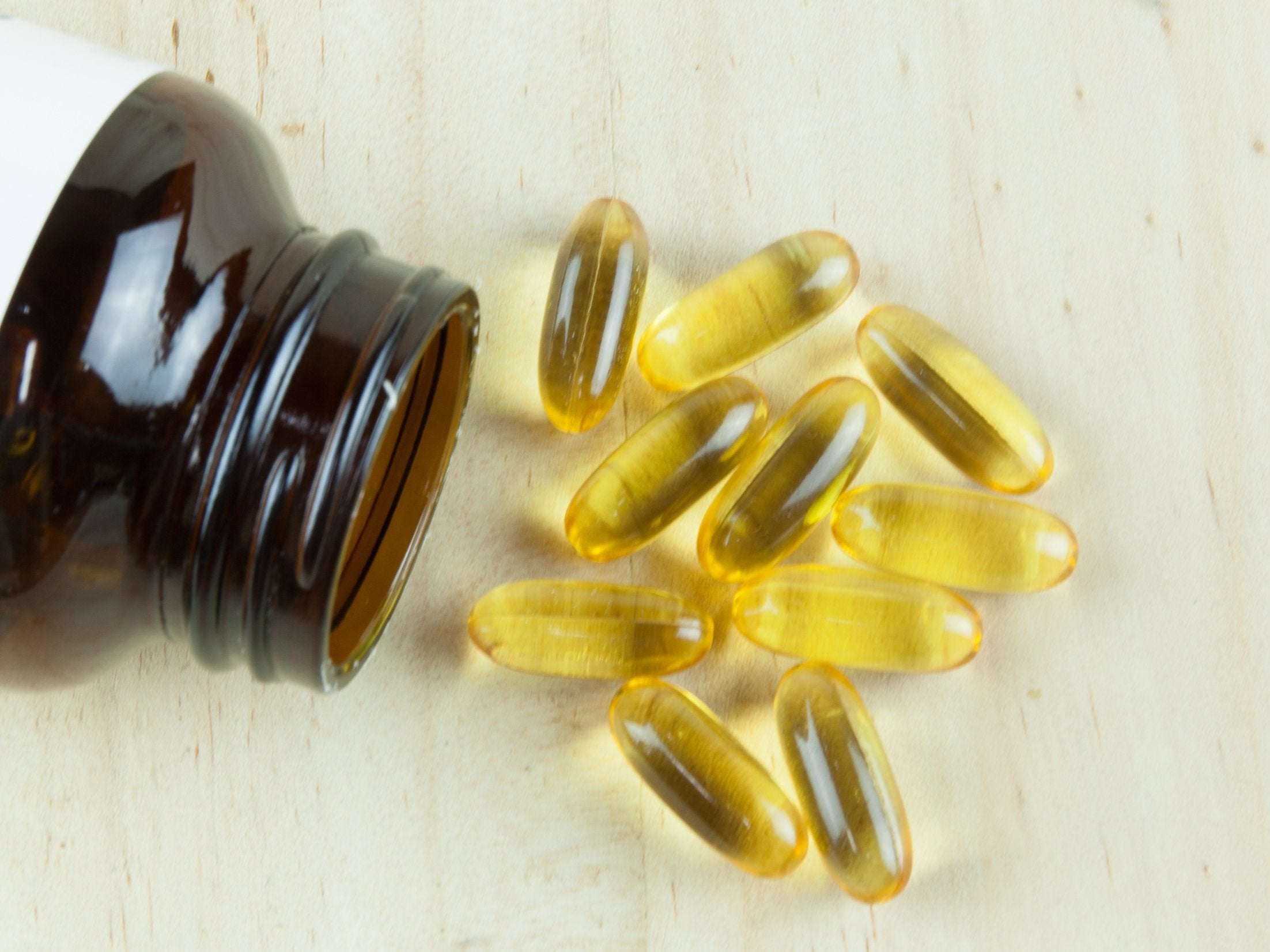Fish oil supplement in pregnancy improves child’s muscle and bone development, trial finds
Children whose parents took supplements had higher BMI caused by overall increase in growth, rather than excess unhealthy fat, Danish research shows

Your support helps us to tell the story
From reproductive rights to climate change to Big Tech, The Independent is on the ground when the story is developing. Whether it's investigating the financials of Elon Musk's pro-Trump PAC or producing our latest documentary, 'The A Word', which shines a light on the American women fighting for reproductive rights, we know how important it is to parse out the facts from the messaging.
At such a critical moment in US history, we need reporters on the ground. Your donation allows us to keep sending journalists to speak to both sides of the story.
The Independent is trusted by Americans across the entire political spectrum. And unlike many other quality news outlets, we choose not to lock Americans out of our reporting and analysis with paywalls. We believe quality journalism should be available to everyone, paid for by those who can afford it.
Your support makes all the difference.Children whose mothers take fish oil supplements during pregnancy have more muscle and stronger bones in early childhood, a new trial has found.
Research from the University of Copenhagen has found that women who took the omega-3 fatty acid pills daily from halfway through their pregnancy had children with a higher BMI by age six.
X-ray scans revealed these children weren’t simply carrying more unhealthy fat as they also had more lean muscle, and higher bone density than the children whose mothers took an olive oil placebo pill instead.
It also showed they were less likely to have asthma or related respiratory symptoms.
The findings suggest the supplement is stimulating growth and follows another study already being considered by the UK government which could lead to all mothers being recommended the supplements before giving birth.
Omega-3 fats are a group of long chain fat molecules abundant in cod liver oil and other supplements variously promoted as helping to protect against heart disease, improving brain power and joint health.
These essential fats can’t be made by our bodies and need to come from our diet, and they are by far the most widely taken dietary supplement in the UK and a cornerstone of a global health industry worth billions each year.
However recent studies have cast doubt on health claims made for omega-3 and other health supplements in adulthood, but they may be more critical in early development.
A recent analysis by Imperial College London found that children whose mothers who took them during pregnancy significantly reduced their chances of developing food allergies, and is being considered by British government to be included in official guidelines.
Published in the British Medical Journal the latest research followed 736 Danish women and their children and randomly assigned them to either omega-3 or a dummy control pill to take between week 24 of pregnancy until one week after birth.
The study was primarily to assess asthma rates, and found a 30 per cent reduction in the fish oil group, but as a secondary measure the children were followed up annually to measure their height and weight and were given body composition x-ray scans at age 3.5 years and age six.
“Fish oil supplementation from the 24th week of pregnancy led to a higher BMI in the offspring from zero to six years of age but not an increased risk of obesity at age six,” the authors write.
“The body composition at age six years in children given fish oil supplementation was characterised by a proportional increase in lean, bone, and fat mass suggesting a general growth stimulating effect.”
Join our commenting forum
Join thought-provoking conversations, follow other Independent readers and see their replies
Comments